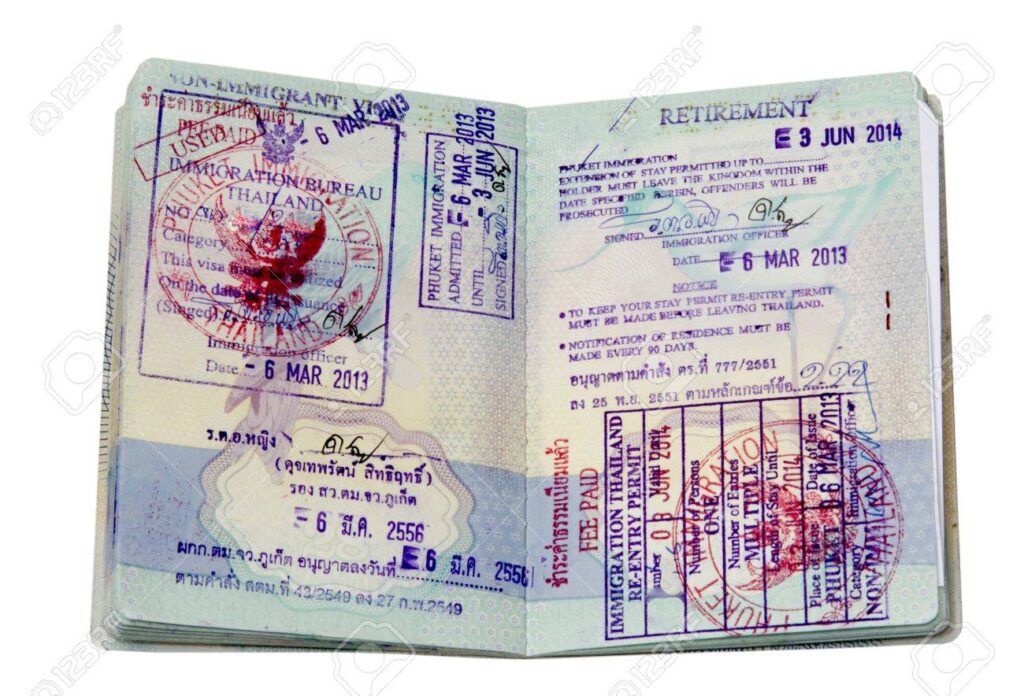Foreigners and overseas investors contemplating doing business in Thailand must contend not only with the machinations for the legal structuring and formation of their business, but also with the requirements and formalities concerning their personal, physical presence in Thailand as well. Whereas the former issues are overseen by the Ministry of Commerce, the latter fall within the purview of the Department of Immigration. Although in most instances foreign investors running a business in the kingdom will invariably need both a non-immigrant visa as well as a work permit, certain others may benefit from a so-called “retirement” visa discussed below.
Foreigners working in Thailand necessarily require a non-immigrant B category visa allowing them to enter and remain in Thailand for an extended period of time of up to one year (which may be renewed, annually). While the specific requirements and procedures for obtaining such a visa are subject to change from time to time, application is typically made from an overseas jurisdiction and requires certain documentation from both the applicant as well as his or her prospective employer, along with a required fee presently set at 5,000 baht for multiple entries over a one-year period. Once obtained, a foreigner seeking to work in Thailand would also require an additional work permit issued by Thailand’s Ministry of Labor, which itself requires the applicant to register with Social Security Department within that ministry. To the uninitiated, the overall process and procedures may seem bewildering at times and prove to be the source of ongoing frustration.
However, depending on a person’s circumstances a non-immigrant O-A category visa, also known as a so-called “retirement visa” may be a preferable alternative for those able to meet the criteria. Such criteria include, first and foremost, a requirement that the applicant be at least 50 years old. Another requirement that may seem daunting on paper, yet can be overcome on a practical basis by qualified service providers, are financial requirements for the applicant to maintain a minimum balance of 800,000 baht in the applicant’s Thai bank account for a prescribed period of time, as well as substantiated proof of ongoing future income as well as health insurance. Applicants for retirement visas are therefore, for the most part, applied for within Thailand after the applicant has secured both a residence and a relationship with a local bank. Once those are obtained, qualified facilitators are often able to expedite the remaining process within 3-5 business days.
Aside from those foreigners lucky enough to actually retire in Thailand, retirement visas are often the de-facto vehicle of choice for so-called “digital nomads” who quietly support themselves online, or for overseas business owners able to manage their affairs remotely, or even for foreign directors of a Thai company for which they are not employed. Because retirement visas extend for periods of one year at a time and can be renewed indefinitely, foreigners need not leave the country following the expiry of a tourist visa (typically 30-90 days depending on nationality) and risk the denial of re-entry on an ongoing basis. Re-entry is certainly permitted, however, so retirement visa holders are free to come and go as they like.
Yet another alternative offered to foreigners, discussed in my separate article, is the Thai Elite Visa introduced in 2003. The criteria for this status are more onerous than for a traditional retirement visa and may not be as easily accommodated. Regardless of your own circumstances, its suggested that you consult with a qualified professional to better understand your options.
(c) 2023 Frank Rittman




